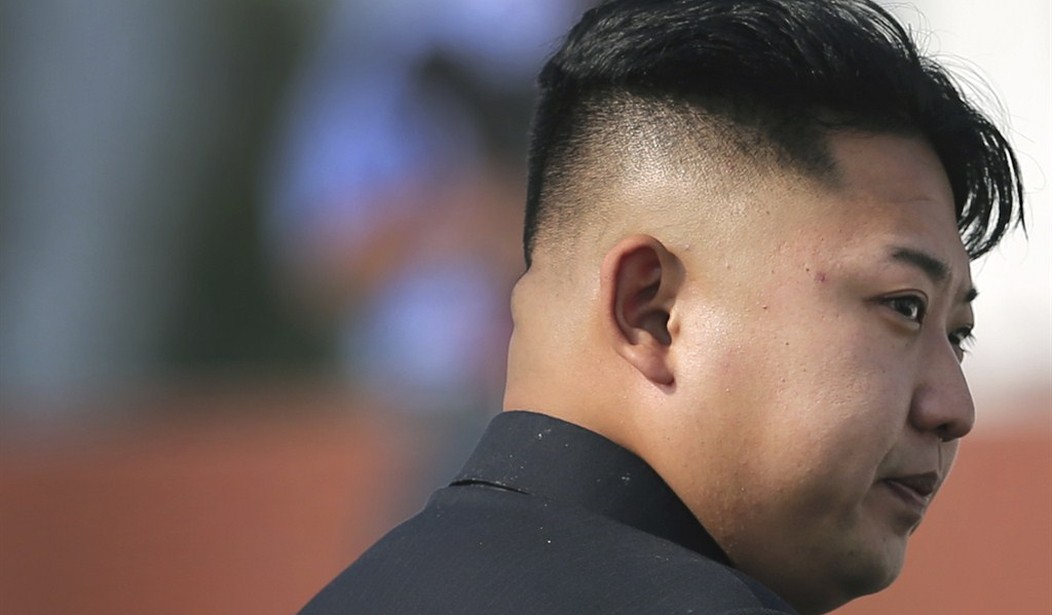North Korea: New information indicates that Kim Jong Un was thoroughly drunk when he ordered the execution of the aides of his uncle, Chang Sung-taek in November. Eight of Chang's aides were executed before Chang. They were among the best and brightest economists in North Korea.
Comment: Kim Jong Un has his father's -- Kim Chong-il's -- strong despotic instinct for survival, but even less insight about how to govern anything, much less a country, such as North Korea.
Kim Chong-il was a drunk and voyeur of pornography who executed those who disagreed with him. Kim Jong Un is following his father's practices of making important decisions while drunk and executing those whom he is told disagree with him.
The key difference is that Kim Chong-il knew who his enemies were because he grew up in North Korea and studied with the veterans of the three Korean wars.
Kim Jong Un is essentially a foreigner; educated in Switzerland, who has no memories of the three wars; no military service, and has to be told who his enemies are by communist party hacks who are now wearing military uniforms. When Kim is drunk, the Army is always on duty.
Iran: Last week, Iran and the six world powers - the five members of the United Nations Security Council plus Germany - held talks for four days. Spokespersons from all countries said there was progress, but the progress was slow.
One point that Iran tried to clarify concerns access to military industrial facilities. After an earlier contradictory statement, Iran announced that it will permit the International Atomic Energy Agency (IAEA) to inspect Iran's missile or ordnance factories or installations.
"The Islamic Republic will subject their (sic) missile and military industries under IAEA inspection in order for transparency and in accordance with the agreement signed between them and the International Atomic Energy Agency," according to an official statement carried by theMehrnews agency.
Recommended
Comment: Iran's intention in making today's statement is not clear. What is clear is that IAEA inspectors must locate and inspect Iran's brigade of BM-25 ballistic missiles which were bought from North Korea. Any inspection that does not find those missiles, however they might have been renamed, is a prima facie failure.
The BM-25 is a North Korean-version of a Soviet SS-N-6 submarine-launched ballistic missile. It was designed to carry nuclear warheads. North Korea obtained the missile; re-engineered it for North Korean purposes; manufactured an export model and sold a brigade to Iran.
Confirmation of Iran's possession of a nuclear capable balistic missile should inform the work of IAEA inspectors.
Syria-Russia: Update. The Russian defense minister, Sergei Shoigu, said Monday that 50 trucks and 25 armored vehicles had been delivered to the Syrian port of Latakia in recent days to help with the removal of the country's chemical weapons stockpile.
Comment: This is a big deal because no other country volunteered to help Syria move its chemical warfare agents securely to a coastal port for ultimate disposal. The Russian support will be critical to the safe movement of chemical weapons agents.
Like it or not, the Russians have the image of being the good guys and key players, even though Western ships and nations ultimately will destroy the chemical agents. The Russians stole a march on the West.
South Sudan: Some 150 US Marines are to be sent to South Sudan to protect the evacuation of US and friendly foreign nationals and to provide security for the US Embassy in Juba.
South Sudanese government troops are preparing to move to recapture the rebel-held town of Bor, according to President Salva Kiir. Kiir told parliament the army was "ready to move", adding that the counter-attack had been delayed to allow US citizens to be airlifted out.
In Unity State, which is under rebel control, oil flows have not been interrupted by the ongoing violence.
The United Nations estimates that nearly 1,000 people have been killed, and 45,000 displaced, in clashes between the Dinka and Nuer tribes since violence began on 15 December.
Comment: The evacuation of foreigners is important and, thus, dominates all open source reporting. The internal security situation remains unclear in Unity and Jonglei States. In the other eight states of South Sudan security conditions appear calm.
News reports indicate at least two states are in rebellion, but are not clear just what that means in terms of popular support and numbers of soldiers.
Of the two states in rebellion, Unity is the more important because major oil deposits and wells are in it. Oil is the lifeblood of South Sudan. Without oil exports, South Sudan is not economically sustainable as an independent state. The report that the internal unrest has not interrupted oil production is good news.
Neither side apparently wants to jeopardize South Sudan's only hope for economic progress.
Special comment: For reasons that are not clear, many of the governments in Sub-Saharan Africa have been destabilized a year or so after the catastrophe of the Arab Spring uprisings. Countries in stress include Mauritania, Mali, Niger, Central African Republic, Nigeria, Congo Brazzaville, Congo Kinshasa, South Sudan and Somalia. These readily come to mind, but there are others, no doubt.
Sub-Saharan African has not experienced this extent of violent internal unrest since 1960.
End of NightWatch
###
NightWatch is brought to readers of Townhall Finance by Kforce Government Solutions, Inc. (KGS), a leader in government problem-solving, Data Confidence® and intelligence. Views and opinions expressed in NightWatch are solely those of the author, and do not necessarily represent those of KGS, its management, or affiliates.
A Member of AFCEA International

























Join the conversation as a VIP Member